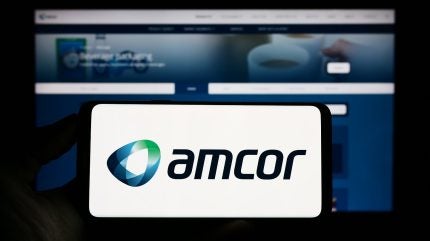
The Science Based Targets initiative (SBTi) has officially approved global packaging solutions provider Amcor’s long-term carbon reduction targets.
The SBTi is a global body that assists businesses in setting emissions reduction targets in line with the latest climate science.
Amcor, which is headquartered in Zurich, Switzerland, aims to achieve net-zero greenhouse gas (GHG) emissions across its entire value chain by 2050, using fiscal year 2022 as the base year.
These targets encompass substantial absolute reductions in scope 1, 2, and 3 GHG emissions.
The areas of focus include purchased goods and services, energy-related activities, upstream transportation, waste management, and end-of-life treatment of sold products.
This announcement follows the confirmation of Amcor’s near-term emission reduction targets earlier in 2024, which are in line with a 1.5°C trajectory.
The near-term targets include a 54.6% reduction in absolute scope 1 and 2 GHG emissions and a 32.5% reduction in scope 3 emissions by fiscal year 2033.
Amcor CSO David Clark said: “We are delighted that our long-term targets have now also been validated, following the approval of our near-term targets earlier this year.
“These targets are an integral component of our sustainability strategy and reflect our commitment to delivering packaging that safeguards products, minimises environmental impact and supports our customers in their decarbonisation ambitions.”
Last month, Amcor released its Decarbonisation Roadmap, which features a ‘4 + 1’ decarbonisation strategy.
The strategy focusses on renewable electricity generation, as well as optimisation of supply chain, recycled content, and product redesign, with the ‘+1’ lever aimed at enhancing operational efficiency.



